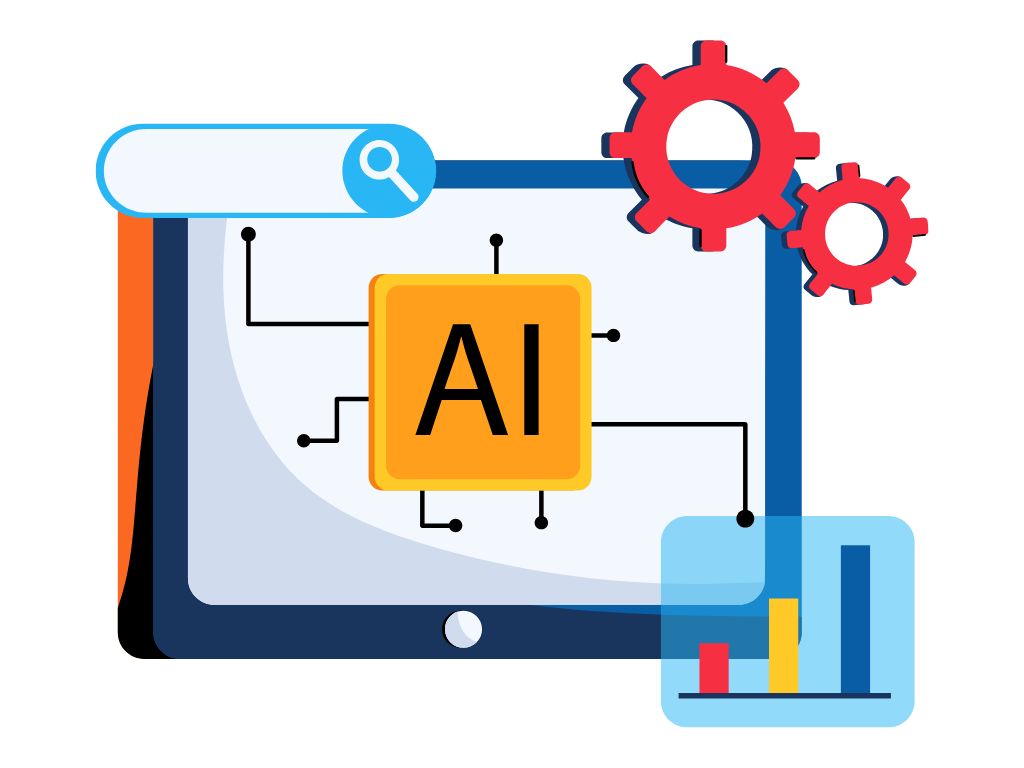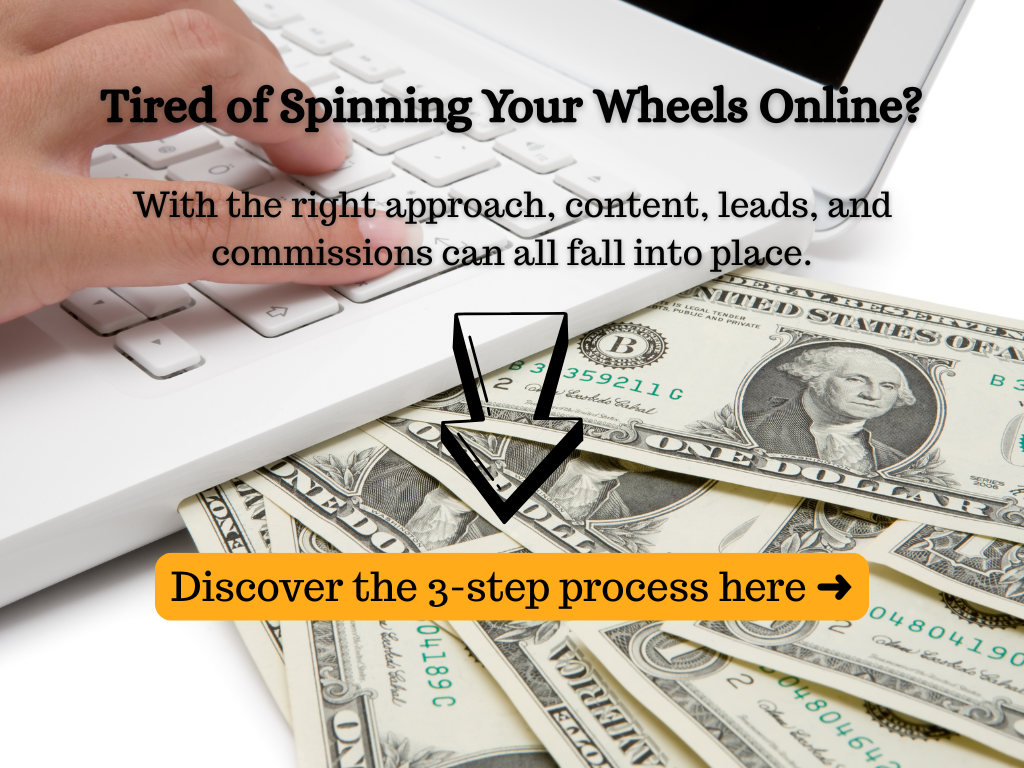21 Profitable Ai Business Ideas You Can Launch in 2025
AI isn’t just transforming industries, it’s creating them. New businesses are being born out of thin air, scaled in months instead of years, and pulling in profits most startups only dream about. The best part? You don’t need a Silicon Valley budget or a PhD in machine learning to get in.
Right now, AI is where the internet was in the early 2000s, wide open, full of untapped opportunities, and quietly minting the next generation of millionaires. The question isn’t if you can start an AI business, it’s which one will make you the most money, fastest.
This guide doesn’t waste time on theory. You’re about to see 21 profitable AI business ideas you can launch in 2025 each with a clear market, a startup path, and tools that cut your launch time to weeks instead of years. Some are lean, low-cost ventures perfect for solo entrepreneurs. Others are enterprise-scale plays that can reshape entire industries.
If you’re ready to move from curiosity to execution, keep reading because by the time you hit the last idea, you’ll know exactly which AI-powered venture could be your next big win.
Key Takeaways
- AI is a gold rush but only if you stake the right claim. Not every AI business will win, but the right model, market, and execution can be life-changing.
- You don’t need to code from scratch. Many of these ideas can be launched using no-code or low-code AI platforms that handle the heavy lifting.
- Small players can beat big ones. AI levels the playing field, letting startups out-innovate slower, established competitors.
- Low-cost entry is possible. Several of these ideas require little more than a laptop, internet connection, and smart use of existing tools.
- The fastest wins happen in underserved niches. While everyone’s chasing AI for marketing, there are hidden opportunities in healthcare, logistics, education, and more.
- Execution beats inspiration. Ideas are worthless until you act and the best time to start is before your competitors catch on.
Read on to discover 21 AI-powered business opportunities each with a real market, a launch pathway, and the potential to scale in 2025.

Why AI Businesses Are Exploding Right Now
In just the past two years, AI has gone from niche tech to mainstream necessity. Chatbots handle customer service for Fortune 500 companies. AI-driven analytics decide million-dollar ad spends. Machine learning models are predicting supply chain bottlenecks before they happen.
And the numbers? They’re staggering. The global AI market is projected to hit $407 billion by 2027, growing at over 36% annually. That’s not just growth that’s a tidal wave of investment, adoption, and opportunity.
Three things make this moment unique:
- Lower Barriers to Entry – AI tools that once cost millions to develop are now available for a monthly subscription, no coding required.
- Cross-Industry Demand – From healthcare to real estate, every sector is scrambling to integrate AI, creating endless niches to serve.
- Speed of Execution – A single person with the right tools can now do the work of an entire team faster, cheaper, and often better.
In short: AI is no longer a “future technology.” It’s here, it’s growing, and it’s still early enough that a smart entrepreneur can claim territory before the market gets crowded.

AI Business Ideas for Tech-Savvy Entrepreneurs with Limited Capital
You don’t need millions in venture funding to build an AI-powered business. With today’s tools, a motivated entrepreneur can launch something profitable with little more than time, skills, and a laptop.
Here are four lean-but-lucrative ideas.
1. AI-Powered Content Creation Agency
Small businesses need blogs, social posts, and email campaigns but can’t afford big marketing firms. You can deliver high-quality, AI-assisted content at competitive rates.
Getting Started: Use tools like Jasper, Copy.ai, or Writesonic to produce drafts, then refine for tone and SEO. Sell content packages via Fiverr, Upwork, or direct outreach.
Potential ROI: $1,000–$5,000/month per client once you build a roster.
2. AI Chatbot Development for Small Businesses
Customer inquiries eat up time. Chatbots can handle FAQs, bookings, and lead capture 24/7. You don’t need to code platforms like Manychat or Tidio, make it drag-and-drop.
Getting Started: Pick a niche (restaurants, salons, real estate agents), create a tailored chatbot template, and sell it as a service.
Potential ROI: $500–$2,000 per bot setup plus monthly maintenance fees.
3. Automated Video Creation Services
Video marketing is expensive and time-consuming. AI tools like Pictory or Synthesia can create professional videos in hours instead of days.
Getting Started: Offer services to YouTubers, course creators, or local businesses. Bundle video scripts, editing, and publishing into a single package.
Potential ROI: $300–$1,000 per video project.
4. AI-Based Resume & Career Coaching Service
Job seekers want tailored resumes and interview prep. AI can analyze job descriptions, optimize resumes, and even simulate interview questions.
Getting Started: Use tools like Rezi or VMock, then add personalized feedback. Market to recent grads and mid-career professionals.
Potential ROI: $100–$500 per client package.
Low cost. High demand. Fast delivery. If you’re willing to hustle, these models can get cash flowing without crushing overhead.
Low-Cost AI Business Ideas at a Glance
These lean AI business models are low-cost, quick to launch, and ideal for solopreneurs or small teams looking for fast ROI.
| Idea | Startup Cost | How You Earn | ROI Potential |
|---|---|---|---|
| AI-Powered Content Creation Agency | Low (< $500 for tools) | Sell content packages (blogs, emails, ads) to SMBs | $1,000–$5,000/month per client |
| AI Chatbot Development | Low–Medium (< $1,000) | Setup + monthly maintenance fees per bot | $500–$2,000 per client |
| Automated Video Creation Services | Low (< $300 for software) | Per-project fees for short videos & marketing clips | $300–$1,000 per project |
| AI-Based Resume & Career Coaching | Minimal (< $200) | Resume packages, coaching, mock interviews | $100–$500 per client |

AI Business Ideas for Established Businesses Seeking Automation
For established companies, AI isn’t just a shiny new tool, it’s a way to save millions, scale faster, and gain an edge over competitors. If you can offer automation solutions that deliver measurable results, you’ll be solving high-value problems they’re eager to pay for.
5. AI Customer Service Automation
Most customer service departments are overloaded and expensive. AI chatbots and virtual assistants can resolve up to 80% of inquiries without human intervention.
Getting Started: Partner with platforms like Intercom or Ada to deploy AI solutions tailored to the client’s industry.
Potential ROI: Reduce support costs by 30–60% for clients which makes your service an easy sell.
6. Predictive Analytics for Sales Forecasting
Many companies still rely on outdated forecasting methods. AI can analyze patterns and predict sales trends with far greater accuracy.
Getting Started: Use tools like Salesforce Einstein or IBM Watson Analytics. Offer monthly reports plus actionable strategy recommendations.
Potential ROI: Clients can make smarter inventory, hiring, and marketing decisions, your fee becomes a fraction of the money they save or earn.
7. AI Supply Chain Optimization Consulting
Delays, bottlenecks, and overstock cost businesses billions. AI can identify inefficiencies and suggest fixes in real time.
Getting Started: Integrate with platforms like Llamasoft or ClearMetal. Target manufacturing, retail, and e-commerce companies.
Potential ROI: Savings of 10–20% on operational costs for clients and high-ticket consulting fees for you.
8. Automated HR Screening Tools
Sorting through hundreds of resumes is time-consuming and error-prone. AI screening tools can shortlist candidates based on skills, experience, and cultural fit.
Getting Started: Partner with platforms like HireVue or Pymetrics, then customize for client needs.
Potential ROI: $2,000–$10,000 per implementation plus ongoing subscription management.
Automation sells itself to established businesses as long as you can prove the savings and show quick wins.
AI Automation for Businesses at a Glance
These AI automation opportunities reduce costs, boost efficiency, and deliver measurable ROI for companies of all sizes.
| Business Idea | Who Needs It Most | Value Proposition | Potential ROI |
|---|---|---|---|
| Customer Service Automation | Companies with large support teams | Cuts support costs with AI chatbots & virtual assistants | 30–60% cost reduction |
| Predictive Analytics for Sales | Retail, e-commerce, SaaS | Improves sales forecasting accuracy | Smarter inventory & hiring decisions |
| Supply Chain Optimization | Manufacturing, retail, logistics | Identifies bottlenecks & inefficiencies | 10–20% lower operational costs |
| Automated HR Screening | Mid–large companies with high hiring volume | Shortlists candidates faster & more fairly | Saves recruiter time, reduces bad hires |

AI Business Ideas for SMEs in Specific Niches
Small and medium-sized enterprises often have unique challenges and they’re willing to invest in AI solutions that directly solve them. By targeting a niche, you can stand out from generic service providers and charge premium rates.
9. AI-Powered Inventory Management for Retailers
Overstocking eats profits. Stockouts lose customers. AI can forecast demand and optimize ordering with precision.
Getting Started: Integrate with tools like E2open or Netstock. Pitch to boutique retailers and e-commerce stores.
Potential ROI: Reduce inventory costs by up to 20%, while improving product availability.
10. AI-Driven Real Estate Market Analysis Service
Real estate agents need accurate pricing, market trends, and investment forecasts. AI can process massive datasets in minutes.
Getting Started: Use platforms like Mashvisor or HouseCanary. Offer subscription-based insights to agents, investors, and property managers.
Potential ROI: Charge $200–$500/month per client for ongoing access to your analysis.
11. AI-Assisted Healthcare Data Processing
Healthcare providers deal with massive amounts of patient and diagnostic data. AI can speed up processing while maintaining compliance.
Getting Started: Partner with HIPAA-compliant AI solutions like Tempus or Aidoc. Target small clinics and diagnostic centers.
Potential ROI: Significant time savings, fewer administrative errors, and premium consulting fees.
12. AI-Enhanced Marketing Campaign Optimization
Many SMEs waste ad spend because they lack deep analytics. AI can track campaigns, segment audiences, and optimize ads in real time.
Getting Started: Use tools like Adzooma or Morphio to manage campaigns for niche markets (e.g., local service providers).
Potential ROI: Boost ROI on ad spend by 30–50%, making your service self-funding for clients.
Niche focus = less competition and faster sales cycles. Once you dominate one vertical, you can replicate the model across others.
AI Solutions for SMEs at a Glance
These AI-driven solutions help small and medium-sized enterprises cut costs, improve efficiency, and boost profitability.
| Business Idea | Ideal Clients | Value Proposition | Potential ROI |
|---|---|---|---|
| AI Inventory Management | Small retailers, e-commerce | Prevents stockouts & overstock, smarter reordering | Cuts inventory costs by ~20% |
| Real Estate Market Analysis | Agents, investors, property managers | Faster pricing insights & investment forecasts | $200–$500/month subscription potential |
| Healthcare Data Processing | Clinics, diagnostic centers | Speeds up admin & diagnostic workflows | Saves time, reduces costly errors |
| Marketing Optimization | Local SMEs, service providers | Improves ad targeting & audience segmentation | 30–50% ROI boost on campaigns |

AI Business Ideas for Large Corporations
When a large corporation invests in AI, it’s rarely a small project. They want enterprise-scale transformation, competitive advantages, and measurable innovation. If you can deliver solutions that integrate seamlessly into complex operations, you’re looking at contracts worth six to seven figures.
13. Custom AI Model Development
Off-the-shelf AI tools often can’t handle enterprise-level complexity. Corporations will pay for models trained on their proprietary data.
Getting Started: Build partnerships with data scientists and leverage frameworks like TensorFlow or PyTorch. Specialize in one vertical (e.g., finance, logistics, healthcare) to build authority.
Potential ROI: High-ticket contracts starting at $50,000 for initial development, plus ongoing maintenance retainers.
14. Enterprise AI Integration Consulting
Many corporations know they need AI, they just don’t know where to start. As an integration consultant, you guide them through tech selection, implementation, and staff training.
Getting Started: Partner with enterprise AI vendors (like IBM, Microsoft, or SAP) and create tailored rollout strategies.
Potential ROI: Multi-month contracts worth $100,000+ depending on scope.
15. AI Ethics and Compliance Advisory
With AI adoption comes regulatory scrutiny. Companies need help ensuring their AI systems meet legal and ethical standards.
Getting Started: Study emerging AI regulations (EU AI Act, U.S. AI Bill of Rights). Offer risk assessment and compliance frameworks.
Potential ROI: $10,000–$50,000 per project, plus annual compliance checkups.
Corporate AI work demands expertise and professionalism but the payoff is contracts that can sustain your business for years.
Enterprise AI Opportunities at a Glance
These high-value AI opportunities are designed for large corporations and regulated industries where custom solutions drive massive ROI.
| Business Idea | Target Clients | Why It Matters | Revenue Potential |
|---|---|---|---|
| Custom AI Model Development | Corporations with proprietary data (finance, logistics, healthcare) | Tailored models solve unique, complex problems off-the-shelf tools can’t | $50K+ per project + retainers |
| Enterprise AI Integration | Fortune 500, large enterprises | Guides companies through AI adoption, reduces wasted spend | Multi-month contracts worth $100K+ |
| AI Ethics & Compliance Advisory | Regulated industries (finance, healthcare, government) | Ensures AI systems meet legal/ethical standards & avoid fines | $10K–$50K per project + annual renewals |

AI Business Ideas for Developers & Data Scientists
If you already have technical skills in AI, machine learning, or data science, you can build solutions that others simply can’t. This gives you the leverage to sell high-value, specialized services or even scalable products.
16. Niche AI SaaS Products
Instead of competing with massive AI platforms, build small, hyper-focused SaaS tools that solve one problem extremely well.
Getting Started: Use frameworks like FastAPI and cloud providers like AWS or Azure. Launch an MVP targeting a narrow market segment.
Potential ROI: $10–$50/month per user scale to thousands of users for recurring revenue.
17. AI Model Training & Fine-Tuning Services
Companies often buy pre-trained AI models but need them fine-tuned to their specific needs.
Getting Started: Offer model customization using client data. Specialize in domains like NLP, computer vision, or predictive analytics.
Potential ROI: $5,000–$30,000 per project depending on complexity.
18. AI API Integration Services
Many businesses don’t know how to connect AI APIs to their existing systems.
Getting Started: Offer integration for APIs from OpenAI, Cohere, or Hugging Face into CRMs, ERPs, or customer-facing apps.
Potential ROI: $2,000–$15,000 per integration, plus possible maintenance retainers.
19. AI Tool Licensing & White-Labeling
Develop a proprietary AI tool and license it to other businesses under their brand.
Getting Started: Build the tool, create licensing agreements, and target agencies or service providers who want AI capabilities without development costs.
Potential ROI: Recurring licensing fees from multiple clients.
Technical expertise plus niche positioning can lead to business models with both high margins and high scalability.
Developer-Focused AI Opportunities at a Glance
These AI opportunities are ideal for developers who want to monetize technical expertise through scalable SaaS products, integrations, or licensing models.
| Business Idea | What Developers Do | Target Market | Revenue Model |
|---|---|---|---|
| Niche AI SaaS Products | Build hyper-focused AI tools that solve one problem well | Small businesses, niche industries | $10–$50/month per user (scalable) |
| Model Training & Fine-Tuning | Customize pre-trained AI models with client data | Companies with unique data needs | $5K–$30K per project |
| AI API Integration Services | Connect AI APIs (e.g., OpenAI, Hugging Face) to apps & CRMs | SMEs, startups lacking in-house tech teams | $2K–$15K per integration + maintenance |
| Licensing & White-Labeling | Create AI tools and license under other brands | Agencies, service providers | Recurring licensing fees |

Emerging AI Business Opportunities for 2025
Some AI opportunities are already proven. Others are just emerging and getting in early could mean owning a market before the competition catches on.
20. AI-Generated Gaming Assets
Video game developers need characters, environments, and animations. AI can produce them at a fraction of the time and cost of traditional methods.
Getting Started: Use tools like Scenario or Kaedim to generate assets. Sell packages on marketplaces like Unity Asset Store or directly to indie studios.
Potential ROI: $20–$500 per asset pack, scalable with volume and niche focus.
21. AI-Driven Personalized Education Platforms
Education is shifting toward hyper-personalization. AI can assess a learner’s strengths, weaknesses, and pace, then adapt lessons in real time.
Getting Started: Use AI frameworks like Open edX or integrate with APIs that handle adaptive learning logic. Target corporate training programs, tutoring services, or niche skill development platforms.
Potential ROI: Subscription models starting at $10/month per user, or licensing to institutions for larger contracts.
These are the kinds of ideas that can look “too new” to most but to a smart entrepreneur, that’s exactly the signal to move fast.
Emerging AI Opportunities at a Glance
These new frontiers in AI are opening the door for innovators to capture early-mover advantages in fast-growing industries.
| Business Idea | What It Involves | Target Market | Revenue Potential |
|---|---|---|---|
| AI-Generated Gaming Assets | Create characters, environments, & animations with AI | Indie game developers, studios, asset marketplaces | $20–$500 per asset pack; scalable with volume |
| AI-Driven Personalized Education | Adaptive learning platforms that adjust to each learner | EdTech companies, corporate training, online tutors | $10+/month per user, or large institutional licensing deals |

How to Choose the Right AI Business Idea for You
With 21 ideas on the table, the challenge isn’t finding opportunities, it’s picking the one you can actually execute. The wrong choice can stall you for months. The right one can start generating revenue in weeks.
Here’s how to decide:
1. Match Your Skills to the Model
Technical background? Consider building AI tools or offering integration services. Strong network in a specific industry? Target that niche with tailored AI solutions.
2. Assess Market Demand
Search forums, LinkedIn groups, and niche communities. Look for problems people are actively complaining about.
3. Calculate Startup Costs & Timeline
Low capital? Lean toward service-based ideas that rely on existing AI tools. Larger budget? Consider SaaS or custom AI development.
4. Evaluate Scalability
Can this business grow beyond you? If yes, it has long-term potential. If not, price accordingly for high-margin work.
5. Test Before You Commit
Offer a pilot or beta to a small group. Use early feedback to refine before going all in.
Pick one idea that aligns with your skills, fits your resources, and solves a real problem. Then commit. The faster you start testing, the faster you’ll know if it’s your ticket into the AI economy.
AI Business Idea Decision Matrix
Use this decision matrix to evaluate AI business ideas before committing time and money. It helps match your strengths with real opportunities while reducing risks.
| Factor to Consider | Why It Matters | What to Ask Yourself | Pro Tip |
|---|---|---|---|
| Skills & Strengths | Aligns your abilities with the business model | Do I have technical, creative, or strategic strengths to leverage? | If you lack coding skills, start with service-based or no-code AI ventures. |
| Market Demand | Ensures your idea solves a real, paying problem | Are people already spending money to solve this issue? | Scan forums, LinkedIn groups, and job boards to validate demand. |
| Startup Costs & Resources | Determines how quickly you can launch | Can I afford the tools, team, or data needed? | Service-based models need <$1,000; SaaS or enterprise ideas need more. |
| Scalability Potential | Defines long-term profitability | Can this grow beyond me, or is it tied to my time? | SaaS and consulting scale faster than one-off services. |
| Risk & Validation | Reduces wasted time & effort | Can I test this cheaply before going all in? | Launch a small pilot or MVP to gather feedback quickly. |

Mistakes to Avoid When Starting an AI Business
AI is exciting, but enthusiasm without direction can be expensive. Avoid these common missteps to keep your AI venture on track.
1. Overcomplicating Your Tech Stack
Many first-time founders burn months building custom AI systems when existing tools would do the job. Start lean, validate the idea, then invest in custom solutions later.
2. Ignoring Market Validation
A clever AI tool means nothing if no one’s willing to pay for it. Talk to potential customers, test your offer, and gather proof of demand before scaling.
3. Underestimating the Human Factor
AI can automate tasks, but trust is still built human-to-human. Offer onboarding, training, and customer support to increase adoption.
4. Neglecting Legal and Ethical Compliance
AI is under heavy regulatory scrutiny. Make sure your business respects data privacy laws, intellectual property rights, and emerging AI ethics guidelines.
5. Scaling Too Soon
Premature scaling drains cash and focus. Nail your processes, client acquisition, and delivery model before expanding.
Avoiding these pitfalls can be the difference between an AI business that fizzles out and one that becomes a market leader.
Common Mistakes in AI Startups (and How to Avoid Them)
Avoid these pitfalls to save time, money, and credibility while building your AI startup. Each mistake has a smarter, actionable alternative.
| 🚫 Mistake | Why It Hurts | Example in Action | ✅ Smart Move |
|---|---|---|---|
| Overbuilding the Tech | Wastes months building custom systems before testing | A founder spends 6 months coding a chatbot before landing a single client | Start lean—validate with no-code or existing AI tools first |
| Skipping Market Validation | Creates solutions nobody pays for | Building an AI app for “productivity” without checking if businesses want it | Talk to 10–20 potential customers before writing code |
| Ignoring Human Support | Reduces trust & adoption | An AI HR tool that gives no onboarding or support leads to client churn | Pair automation with strong customer service & training |
| Scaling Too Fast | Burns cash & focus | Hiring too many staff before proving consistent demand | Perfect your offer with small wins, then expand |
| Neglecting Compliance & Ethics | Risk of lawsuits, bans, or bad PR | Launching an AI health tool without HIPAA compliance | Stay updated on laws (EU AI Act, GDPR, industry rules) |
Conclusion
AI isn’t a trend. It’s the new infrastructure of business. Every month you wait is another month competitors stake their claim, refine their models, and capture the customers you could be serving.
You now have 21 proven AI business ideas from low-cost, solo-friendly side hustles to enterprise-level ventures that can reshape entire industries. The opportunity is real. The tools are accessible. And the market is hungry.
Pick one idea today. Commit to testing it within the next 30 days. Get feedback, refine, and scale. Success in AI won’t come from thinking about it, it will come from moving before the rest of the world catches up.
If you’re ready to take the leap, start by bookmarking this list, choosing your first idea, and mapping your launch plan. Then make it real.
Your AI business could be the one everyone else wishes they started in 2025.

Frequently Asked Questions (FAQs) About Starting an AI Business
1. Can I start an AI business without coding skills?
Yes. Thanks to no-code and low-code AI platforms, you don’t need to be a programmer to launch an AI business. Many profitable ideas like AI-powered content services, chatbots, or analytics consulting can be built using existing tools. Your main focus should be on solving customer problems and adding value.
2. What is the most profitable AI business model in 2025?
Some of the most profitable models right now are:
- AI content creation agencies (high demand, low startup cost)
- Predictive analytics for businesses (saves companies money)
- Niche AI SaaS tools (recurring subscription revenue). Profitability depends on your niche, execution, and ability to scale.
3. How much money do I need to start an AI business?
It varies by model:
- Service-based businesses (like AI consulting, content creation, chatbot setup) can start with under $1,000.
- SaaS products or custom AI development may need $5,000–$50,000+. Start lean and validate your idea before investing heavily.
4. How fast can an AI business become profitable?
Service-based models can turn profitable within 1–3 months since they require little upfront investment. Product-based or SaaS models take longer (6–12 months) but can scale with recurring revenue once traction builds.
5. What industries are best for AI businesses in 2025?
AI is booming across industries, but the best opportunities are in:
- Marketing & content creation
- Healthcare (data analysis, diagnostics support)
- Real estate (market analysis & predictions)
- Education (personalized learning platforms)
- Retail & e-commerce (AI-driven product recommendations & inventory management)
6. Are there risks in starting an AI business?
Yes. Risks include regulatory changes, market saturation, and over-reliance on third-party AI platforms. You can reduce risk by staying updated on AI laws, validating demand early, and diversifying your services or tools.
7. How do I choose the right AI business idea for me?
Match your skills to the business model (tech skills = SaaS or integrations, business/marketing skills = content or consulting). Check demand in your target niche, start lean with low-cost tools, and validate with real clients before scaling.
8. Is AI a good business to start in 2025?
Absolutely. The AI market is projected to grow to $407 billion by 2027, and early adopters have a major advantage. 2025 is still early enough to capture niches before they saturate.
9. Can small businesses use AI to compete with big companies?
Yes. AI levels the playing field. Small businesses can now access affordable AI tools for marketing, automation, and customer service that were once available only to large corporations.
10. What AI business can I start with no money?
If you’re starting with almost no capital, focus on service-based models like AI content creation, resume optimization, or chatbot setup using free or low-cost tools. You can scale into SaaS or product-based models later.
One Response to 21 Profitable Ai Business Ideas You Can Launch in 2025